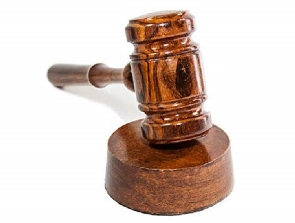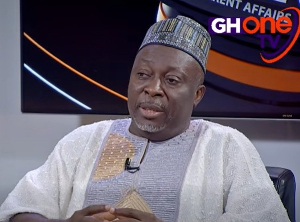With legal education in an apparently confused state; and such confusion beginning to have an echo in the legal profession in general, any attempt to reform the existing legal framework on legal education and the profession should be welcoming news.
However, the proposed Legal Profession (Amendment) Bill 2018 has been received with mixed feelings. This paper examines the proposed Bill and explores the reasons for stakeholder discontent with the legislative proposals.
Particularly, the paper demonstrates why a quick-fix approach not only extends the checkered history of quick-fix amendments to an already tired and near-obsolete Legal Profession Act1 but also risks further unsettling an already volatile situation and could leave the legal profession worse off.
The paper proposes that a more comprehensive overhaul of the Act to accommodate emerging trends in legal practice and education is long overdue.
Since independence, there has been only one institution responsible for the professional training of lawyers in Ghana - the Ghana School of Law (GSL).
This did not seem like a problem then because until the year 2003, University of Ghana (UG) was the only academic institution offering the Bachelor of Law (LLB) degree and there seemed to be an informal arrangement between the two institutions on student numbers.
Currently, there are over fourteen (14) institutions churning out thousands of law graduates for GSL with its limited facilities. This has resulted in a system where thousands of LLB graduates compete for limited places at GSL. Overwhelmed with the numbers, GSL introduced a competitive examination to select candidates for admission.
Since its introduction, the examination has faced some challenges. The legal basis for conducting the examination has even been challenged in the Supreme Court.
In addition to this, the General Legal Council (GLC) has introduced several changes to the professional training of law students. This includes changes in the duration of the study, content of the curriculum and the mode of examination with the introduction of an Independent Examination Committee (IEC).
Another area of growing debate is the GLC’s disciplinary powers and the mode of exercising the same.
Recently, lawyers have increasingly been dragged before the disciplinary committee of the GLC for all manner of misconduct allegations.
The GLC has attributed “creeping indiscipline” to a lack of professional standards within the profession. It is in an effort to resolve these issues that a Bill has been tabled before Parliament to amend the Legal Profession Act, 1960 (Act 32).
law students 1
The proposed legislative grafting:
Putting new wine into old wineskin! The good old book – the Bible admonishes us against the putting of new wine into old wineskin. The effect of such an exercise is obvious.
In 2019, when we have the opportunity to amend the Legal Profession Act, we cannot anchor our proposals on the foundations of a 1960 legislation which was drafted in a period where the current challenges of legal education and the profession were absent.
For the purposes of this paper, the proposed amendments have been summed into three themes: Requirements for Pupillage and Renewal of Licence (Clause 1), Quotas Entrance Examination and Establishment of the Independent Examination Committee (Clauses 2, 3 and 4), Disciplinary Matter of the Legal Profession (Clauses 5 – 18).
The requirement of Pupillage and Renewal of Solicitor’s Licence (Clause 1)
The memorandum accompanying the Bill in clause 1 proposes the extension of the duration of pupillage from six(6) months to twelve (12) months.
The clause states:
“Section 8 of Act 32 amended
1. The Legal Profession Act, 1960 (Act 32) referred to in this Act as the “principal enactment” is amended in section 8 a.
By the substitution for subsection (3) of
“(3) A person who has not previously been entitled to practice as a solicitor in the Republic and who does not hold a qualifying certificate but has, after qualification, attended and satisfies the Council that since qualifying as a lawyer, that person has read for a period of not less than one year in the chambers of another lawyer of not less than seven years’ standing at the Bar approved by the Council…..”
The reason for the extension of the duration of pupillage is laudable – to offer adequate training in a chamber of a lawyer of not less than seven years standing. However, this laudable idea is caught in the 1960 thinking and idea of legal practice and training.
The nature of the pupillage envisaged under the proposed amendment is that which takes place in “chambers of another lawyer of not less than seven years standing”.
This chamber training effectively eliminates and reduces the scope of what may be termed as “legal practice” or the legal profession. It is instructive to note that none of the previous amendments and the current proposed bill attempted to delineate and define the scope of legal practice or the legal profession.
The scope of the legal profession or practice has always been limited to the practice of appearing before courts or preparing briefs or legal documents – thus the blurred bifurcation of the profession into Barristers and/or Solicitors.
This categorization takes out judges and law teachers from the scope of legal practice. It also reduces the work of the legal practitioner to “chambers” thus excluding the law departments of corporations 2 and the faculties of law of the various universities.
Furthermore, the term “chambers” is not defined in the law. Chambers usually refers to the office of a lawyer; a one-man practice. It is uncertain whether this definition is what is meant by the amendment. What can be inferred is that chambers refer to any practice of a lawyer that is not a legal department, court or faculty.
The scope of the practice of law today goes beyond the preparation of legal documents and appearance in court. The practice of the law is more complex today such that limiting training of pupils to just two forms leaves the profession handicapped.
There is a growing number of lawyers who pursue meaningful careers in academia and the judiciary. Therefore, the GLC cannot ignore their input in their approach to training pupils. Any amendments to the rules of pupillage must consider not only duration but also place of performance.
It is our considered view that the places where one may be admitted as a pupil should extend to legal departments, the courts and law faculties. This will invariably solve the problem of packing pupils into the few active and functioning chambers and reducing them to “suitcase pullers” and “file carriers”.
Thus, any amendment should define and expand the scope of the legal profession. It is proposed that any delineation of the scope of the legal profession should in the minimum refer to the full range of potential occupational roles purposely oriented towards the administration and maintenance of the legal system, including judges, lawyers, as well as legal academics.
3 This can only be achieved by a comprehensive review of the 1960 legislation on legal practice and not with a quick fix amendment.
Clause 1 of the proposed amendments also places new requirements for the annual renewal of a solicitor’s license. These include providing evidence of not being found guilty of professional misconduct within and outside the Republic, not being sanctioned for professional misconduct, having undertaken twelve hours of continuing legal education programmes and provided legal aid service.”
It is a great idea that the proposed Bill seeks to encourage the pursuit of Continuing Legal Education (CLE) programmes and the provision of legal aid. However, to make these programmes conditions precedent for the renewal of solicitor’s license will be a challenge that the Legal Council cannot handle effectively.
A number of questions are begging for answers. Which programmes will be accredited? Who will accredit the programmes? Can other service providers (including faculties) provide the CLE programmes or would be a monopoly for the GLC? What if, in a legal year, the CLEs offered are outside practitioners’ area of specialization or practice?
On the proposal for legal aid, the definition and scope of legal aid is missing in the Bill. What will be considered as legal aid service is also absent? Is it services rendered by practitioners only to the Legal Aid Commission? Will community legal service will be considered as legal aid? Does it have to be pro bono or heavily subsidized to qualify as legal aid? How many hours? Is it submerged in the twelve (12) hours of CLE programmes?
These are a few of the questions that need thorough discussions which will feed into a comprehensive amendment of the legal framework on legal profession in Ghana.
Quotas, Entrance Examinations and Establishment of the Independent Examination Committee (Clauses 2, 3 and 4)
Perhaps, the proposals contained in clauses 3 and 4 have been the most debated issues in the last five (5) years.
In our view, the problem with legal education presently is a question of clarity on standards, availability of infrastructure and not an issue of legislative intervention.
The proposed intervention of allocating quotas to the universities is needless intermeddling in the affairs of faculties of law. What will be the criteria for allocating the quotas? Will it be an equal quota for all institutions running the LLB programme? Will the quota for public institutions vary from that for private institutions?
How will the GLC deal with new institutions that want to introduce the LLB programme? Will this quota system be temporary? The answers to these questions are absent from the proposed amendment.
The current system of running a professional law programme outside the faculties of law is unsustainable. This is because the distinction between procedural law and substantive law is artificial.
It is more advantageous to the teaching of the law for students to learn the substantive and procedural law together. The various faculties of law have the personnel and space to effectively run the professional law courses. This will help erase the misplaced distinction between “practice and academia”.
This proposal of devolving the teaching of the so-called professional law courses to the faculties of law can in the interim be piloted for legislative reforms in the short-term.
The superimposition of an entrance examination and interview processes for the selection of candidates to pursue the professional law course has left a trail of alleged palpable issues – backlog of thousands of applicants, allegations of examination leakages and the use of protocol admissions.
We have at least implemented the “Makola Model” professional law training for decades. Can the GLC at least pilot the devolution of the professional law training to the faculties of law?
The modalities for such devolution can be worked out with the universities. Should the GLC and Parliament insist that the best form of training lawyers is the “Makola Model”, then the following must be given critical thought in the passage of any legislation to regulate the legal profession:
1. The Composition of the Independent Examination Board – the current composition of the board would have to change. There are a number of past Deans and Directors of Legal Education and seasoned academics from the various law faculties on retirement whose expertise in administering legal education can be valuable to such a Board. Composing the board with only judges and practitioners has not delivered the desired results in the administration of the examination.
2. The legislation must prescribe in the minimum the structure and content of the entrance examination.
The current format, content and the alleged opacity that surrounds the examination administration processes must be addressed. Can the Board administer only multiple-choice questions for the entrance examination?
Multiple-choice questions are an objective standard and the subjectivity associated with marking schemes and marking styles would be totally addressed.
The Common Law Admission Test of India 4 and the Law School
Admission Test (LSAT) are examples of standardized tests that the examination Board may learn from or adopt with the necessary modifications. With the advent of technology, such standardized tests are automated and marked almost within minutes after taking such examinations.
3. The legislation must require that the grading formula and the cut -off point of admission be made public before the examinations are written.
Also, the examiner’s report detailing the performance of candidates should also be published after every examination. This will inform future candidates and the faculties on how to improve teaching and learning of the law.
If the proposal for multiple-choice questions is not acceptable, the examiner’s report will serve as an indicium of what the examiners are expecting from future candidates.
Disciplinary Matters of the Legal Profession (Clauses 5 – 18).
Central to the proposed amendment in the 18-clause Bill are provisions on disciplinary matters. It would appear as if the legal profession in Ghana is going rogue and needs to be hemmed in with the establishment of a beefed-up disciplinary committee with wide powers to call lawyers to order including slapping errant practitioners with pecuniary penalties!
Under the proposed provisions on the discipline of lawyers in the Bill, the GLC will have the authority to direct the Judicial Secretary to strike off the Roll of lawyers without holding a disciplinary inquiry, the name of a lawyer who has been charged with an act of dishonesty or moral turpitude or who purports to practice while on suspension.
The clause, in its present form, gives no clarity on the kind of “sanction” that is referred to or by whom. Further, it flouts the revered legal principle of audiatur et altera pars which all administrative bodies are expected to adhere to in the discharge of their mandates. The phrase “purport to practice” as contained in clause 6 will lead to a subjective judgement being made to determine what will constitute
“purport to practice”.
Clause 7 of the Bill provides that where criminal proceedings involving dishonesty or moral turpitude are pending in court against a lawyer or an appeal against the conviction of a lawyer has not been determined, the lawyer may be suspended from practising by the Disciplinary Committee with a right to appeal to Supreme Court against such a decision.
This provision, in effect, infringes on the constitutional right of a person to be presumed innocent until proven guilty when charged with a criminal offence.
5 This provision, to the extent that it infringes the Constitution should be considered as void. The suspension of a lawyer from legal practice is a form of punishment that has the potential of affecting the image of the said practitioner. Suspending a person merely because he has been charged with an offence is inconsistent with the presumption of innocence afforded by law.
One, therefore, would struggle to find justification in meting out punishment before ascertaining, beyond reasonable doubt, an accused person’s guilt through due process. Often, indicted employees are made to proceed on leave while disciplinary investigations are ongoing to forestall any interference by them in the investigations.
In the case of the Disciplinary Committee, it is unimaginable how an accused lawyer may interfere with the investigations of the Disciplinary Committee whilst he practices as a lawyer?
This new provision is blatantly unconstitutional.
Open the windows and doors for fresh air! Comprehensive reforms as opposed to ad hoc quick fixes The reforms in the Catholic Church which began in 1962 under the processes code-named “Vatican II Reforms” are seen as one of the bold sweeping reforms embarked on by the church.
It took the boldness of leadership - Pope John XXIII! Processes that were opaque have now been made transparent. The Priest does not turn his back to the concertation to perform “rituals” and the bible is not in the custody of only the priest! The regulation of the legal profession and administration of legal education in Ghana needs a “Vatican II Reform” moment. We do not need a gangrenous grafting of these proposed amendments on the 1960 legislation.
What we require is a comprehensive reform of the profession and the administration of legal education.
We propose the following, in the minimum, a table of contents for a new LEGAL EDUCATION AND PROFESSION (LEAP) BILL 2019:
PART ONE (I): LEGAL PROFESSION QUALIFYING COUNCIL
PART TWO (II): ADMINISTRATION OF LEGAL EDUCATION 1. Accreditation of law faculties and Course Content 2. Professional Legal Training 3. Enrolment Requirements 4. Requirements for Call to the Bar 5. Pupillage (a) Law Chambers
(b) Legal Departments (c) Courts (d) Academic Institutions
PART THREE(III): PRACTICING CERTIFICATE 6. Licensing Requirements 7. Renewals
PART FOUR (IV): ADMISSION OF FOREIGN TRAINED PRACTITIONERS TO THE GHANA BAR
PART FIVE (V): PARALEGAL TRAINING AND PRACTICE
PART SIX (VI): PROFESSIONAL PRACTICE, ETIQUETTE, CONDUCT AND DISCIPLINE 8. Advertisement 9. Professional Development 10. Legal Aid
PART SEVEN (VII): DISCIPLINARY PROCEEDINGS AND SANCTIONS
PART EIGHT (VIII): MISCELLANEOUS
In summary, the writers have proposed the following:
1. The best approach to reform Legal Education and Practice is a comprehensive review of the 1960 Legal Profession Act and not a quick-fix amendment.
2. Any amendment on pupillage should go beyond duration to include the place of performance.
The requirement that pupillage should be done in a chamber limits the scope of legal practice. The scope of legal practise should be defined. Pupillage should extend to practice in legal departments, the bench and academia.
3. The proposed new requirements for the annual renewal of a solicitor’s licence should be reconsidered; the current drafting of the requirements is unsatisfactory.
The provision should throw more light on the Continuous Legal Education and Legal Aid required. 4. The current system of running a professional law programme outside the faculties of law is unsustainable. We should pilot the devolution of the professional courses to the faculties of law.
5. Should Parliament insist on the professional legal education being run by the Ghana School of Law, then the following should be considered: Page 9 of 9
a. A change in the current composition of the Independent Examination Committee to include more academics
b. The entrance examination should be standardised.
Legislation should set the minimum structure and content of the examination, preferably only multiple-choice questions since its more objective and quicker to grade.
c. Legislation must require that the grading formula and the cut -off point of admission be made public before the examinations are written.
d. The examiner’s report detailing the correct responses and breakdown of exams should be published for every entrance exam.
6. The proposed provision giving the Council the authority to direct the Judicial Secretary to strike off, from the roll of lawyers without holding a disciplinary inquiry, the name of a lawyer who has been charged with an act of dishonesty or moral turpitude or who purports to practice while on suspension is problematic. It is a breach of the rule on natural justice.
7. The provision which permits a lawyer to be suspended while criminal proceedings involving dishonestly are pending is a breach of the constitutional right to be presumed innocent till proven guilty.
Let the drafting begin! Away with the quick-fix grafting!
Opinions of Thursday, 17 October 2019
Columnist: Clement Kojo Akapame and Dennis Abu Martey















